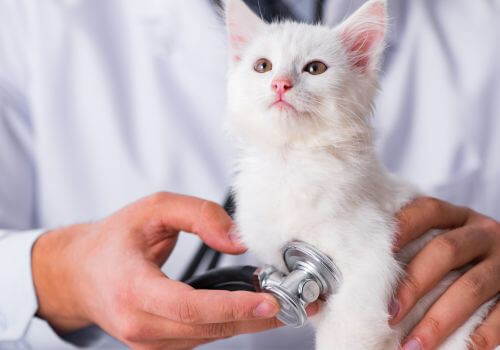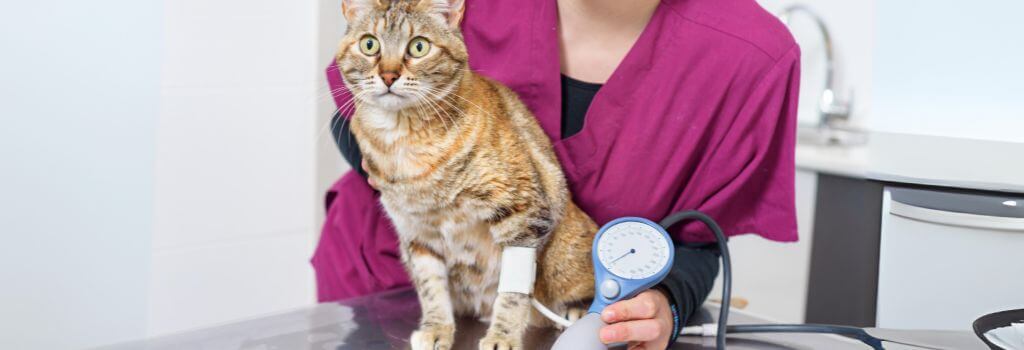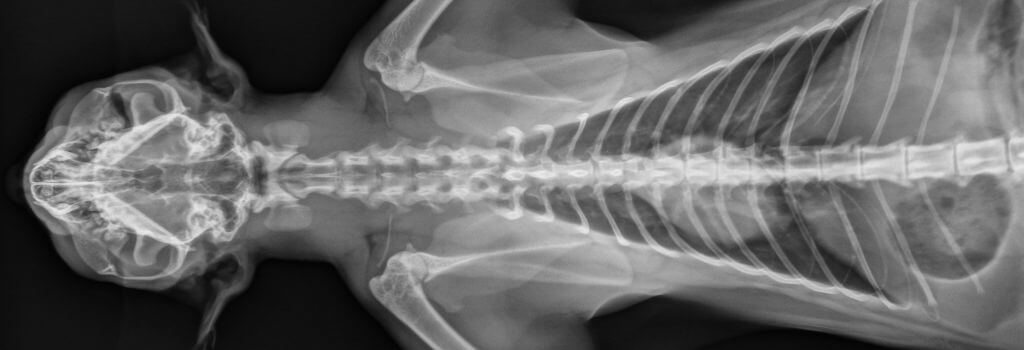Despite the fact that cats are very independent and stoic pets, they still require regular veterinary checkups to ensure that they are in optimal health. One area of cat health that is especially important is cardiology since cardiac issues are common in cats and can potentially be life-threatening if left untreated. In this article, we will explore the various heart issues cats can experience, the symptoms, treatments, and preventive measures to help keep cats heart-healthy.
At Urban Veterinary Associates, we are committed to delivering the highest quality care to pets and the best service to pet owners. We understand how important it is to keep your cat healthy and take great care in diagnosing and treating feline cardiology issues. Our goal is to provide pet owners with the information they need to identify potential heart problems in their cats so they can seek the right treatment quickly.

What are Some Heart Problems Cats Can Encounter?
Cats can suffer from both congenital and acquired heart diseases. Congenital heart diseases are present at birth, while acquired heart diseases develop over time. The most common type of acquired heart disease in cats is hypertrophic cardiomyopathy (HCM), caused by the enlargement or thickening of the heart muscle. Other types of feline cardiac issues include high blood pressure, feline myocarditis (inflammation of the heart muscle), and feline arterial thromboembolism (ATE).
How Do Heart Issues Impact the Health and Well-Being of My Cat?
Heart issues can lead to breathing difficulties, reduced ability to exercise, weight loss, lethargy, and poor appetite. In severe cases, cats may experience congestive heart failure due to the heart’s inability to pump blood efficiently. This can cause fluid buildup in the chest and abdomen, leading to labored breathing and even sudden hind leg paralysis or fainting/collapse due to blood clots.
What Preventive Measures Do Veterinarians Recommend to Help Avoid Feline Cardiology Issues?
The best way to keep cats safe from heart issues is through preventive measures. Regular checkups with a veterinarian are essential, as they can detect heart murmurs and other irregularities early on. Blood tests, such as ProBNP tests, can also be used to identify cats at greater risk for heart disease. Additionally, providing cats with a healthy diet and regular exercise can help maintain their heart health. Blood pressure should also be monitored regularly, particularly in senior cats. Finally, supplements may be beneficial in some cases; however, it is important to consult with a veterinarian before introducing any supplements into your cat’s diet.

What Are Some Signs and Symptoms of Cat Heart Issues, and What Problems Can They Cause?
The signs and symptoms of heart issues in cats can be difficult to detect in the early stages, as cats often do not display any clinical signs until the disease is advanced. Common signs include poor appetite, weight loss, lethargy/inactivity, difficulty with or discontinuing exercise, regularly elevated heart rate, increased respiratory rate and effort, shortness of breath or difficulty breathing, sudden hind leg paralysis, and fainting/collapse. If left untreated, these issues can lead to congestive heart failure or other life-threatening conditions.
Why is it Important to Avoid Self-Diagnosing Heart Problems in Your Cat?
Self-diagnosis of heart problems in cats can be dangerous and lead to potentially fatal delays in seeking proper veterinary care. Self-diagnosis based on online search results can often be inaccurate and may lead to a misdiagnosis of your cat’s condition. Symptoms of heart problems in cats can be indicative of a wide range of diseases, each requiring specific treatments. Attempting to self-diagnose and treat your cat based on online information could result in the administration of incorrect treatments, which may have serious implications for your cat’s health and well-being.
How Will a Veterinarian Diagnose Heart Issues in My Cat?
Veterinarians use several different methods to diagnose cat heart issues and will typically start with a physical examination to check the pulse, body, and gums for any irregularities. X-rays are often used to diagnose specific cardiovascular diseases and congestive heart failure, while electrocardiography (ECG) is used to record the electrical activity of the heart. An echocardiogram, which is an ultrasound image of the heart, is the definitive method for diagnosing heart diseases in cats as it reveals gross abnormalities. Blood tests such as NT-proBNP can help diagnose heart disease before there are any changes noted on the physical exam.
What is a Veterinary Cardiology “Workup”?
A veterinary cardiology workup is a comprehensive evaluation of the pet’s heart health. This includes a physical examination, electrocardiography (ECG), Holter monitoring, echocardiography (ultrasound of the heart), chest X-rays, and blood tests. The primary goal of this workup is to identify any underlying issues that could be contributing to the cat’s heart disease, as well as to determine the severity and formulate an appropriate treatment plan. This work-up is performed by a board certified veterinary cardiologist.

What are Some Possible Treatments or Procedures for a Cat With Heart Issues?
The specific treatment or procedure for a cat with heart issues will depend on the type and severity of the condition. Common treatments and procedures include medications to prevent clot formation, , reduce fluid overload, and lower blood pressure; oxygen therapy; taurine supplementation if the diet is insufficient; and surgical procedures to remove excess fluid buildup from the chest cavity or abdomen.
Why is Early Detection and Diagnosis so Important for Cat Heart Problems?
Early detection and diagnosis of heart problems in cats is important for a variety of reasons. Early detection can improve the heart’s function and the cat’s quality of life, reduce the risk of fatal cardiovascular diseases, and enhance the owner-pet relationship. In addition, early diagnosis can lead to more effective treatment and potentially reduce long-term costs associated with managing heart disease in cats. Finally, early diagnosis can help identify potential risks in predisposed breeds or species, allowing pet owners to take preventive measures to keep their cats safe and healthy.
Conclusion
The health and well-being of cats is a priority for every pet owner. Heart issues can be life-threatening if left untreated, so it’s important to be aware of the signs and symptoms and seek timely veterinary care if needed. Regular checkups with a veterinarian are essential for detecting cardiac issues early on, while preventive measures such as providing a healthy diet and regular exercise can help keep cats safe from potential heart problems. At Urban Veterinary Associates, we are committed to delivering the highest quality and best service to pet owners, so please don’t hesitate to contact us today with any questions or concerns about your cat’s heart health.
If you live in or near Westmont, IL, contact us today at (630) 541-8088 to set an appointment or if you have any questions about cat cardiology.
